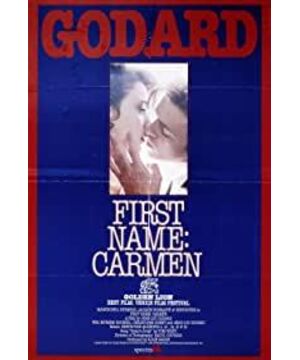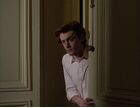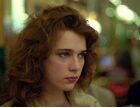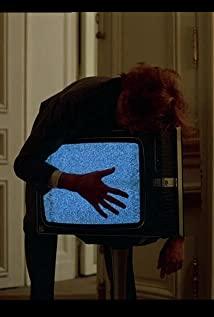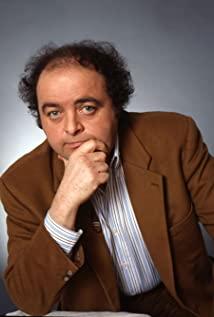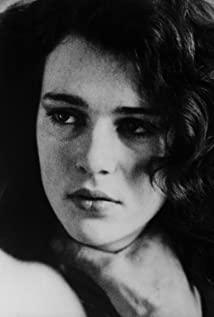Back to the topic, here I have a few questions to try to talk about this Godard's controversial film.
How did Godard (aka director, writer) disappear during our viewing (or he didn't even want to show his face from the beginning to the end, although he actually did show his face in the film.)
In the scene of playing the quartet we The composition was found to be random, with people out of focus often blocking people in focus. Even if the light is sufficient, the director did not consider the depth of the panorama, but the real and the imaginary. By the way, the light is mentioned here. The director of the filming in the performance part prefers natural light, while the part in the hotel has to be used because the windows are often blocked by curtains. Artificial lighting. And there's that overhead shot, where none of the four playing people are fully in the frame, and not even a whole area of one of them is in the frame. I think it's the creator's attempt to downplay the attention of the camera in the eyes of the audience. It's the director's unwillingness to make us feel like we're watching a movie. He hopes that we might think we're reminiscing, or self-imagining, whatever. , just don't think we're watching a stupidly rehearsed movie! Godard not only minimized the director's traces in terms of photography and lighting, but also adopted the same idea in editing. He's never going to follow the story line smoothly and smoothly like most of our brilliant filmmakers do, it's too artificial, and he's tinkering with something like this. This idea of Godard is an important symbol of the new wave, but there are also many excellent film directors who don't care about it, and now I can think of Greenaway ("Contract when drawing") and David Lynch ("Contract when drawing"). Mulholland Drive). Their films specifically highlight the sense of drama. Greenwiener's composition is simply amazing. In Lynch's "Mulholland Drive", there was a scene directly in a theater, and the female singer opened the curtain and talked about real topics. These examples are clearly reminding the audience that you are looking at our carefully crafted artwork, enjoy it!
2. How Godard downplayed storyline and dramatic conflict. Strengthen the expression of emotions and connotations
During the two shootouts, unrelated personnel were still doing their jobs, cleaners were cleaning up bloodstains, and repairmen were fixing lights. It seemed that the sudden shock of this magnitude had no effect on them. This is to prevent the shootout from appearing too real, which would lead us to the wrong direction of viewing the movie. The selection of camera positions is also quite unusual, and the director seems to have deliberately prevented us from viewing such a stimulating scene from the angle and field of view we want to see. The actors' performances are different from the camera's. They have exaggerated and exciting performances: the hero and heroine chase wildly in the hotel, kiss passionately at the robbery scene, hit each other with doors and windows, and have rough sex in the bathroom (unsuccessful). The physical contact between the hero and heroine conveys a tense and unstable relationship between them. Carmen's uncle behaved even more bizarrely. He was alone in the ward slapping the decorations nervously, making rude words to the nurse, and throwing his shoes in different places when he slipped. This was done to emphasize the character of the characters played by the actors, a technique I remember best when Antonioni asked the actors to cast the cameraman in "Zoom in." The role of Uncle Carmen has an important position in the film, but because of the small number of scenes, it is easy to be ignored, so the key to understanding the deep meaning of this film is ignored. He seems to be a preacher, a savior (he said: modern people don't do what they want, I speak my heart. No matter when and where, the classics will always be fascinating. Young people are crazy, they have a good memory, but forget everything . We should close our eyes, not open them. Young people of today are useless, nobody invented jeans or cigarettes, nothing. Today, omnipotent machines make products we don't need, from atomic bombs When it comes to plastic cups, no one needs atomic bombs and plastic cups. Beauty is the beginning of bearable fear.) He paid the rent for one of his apartments until 2000, a year worth pondering. By the way, we can contrast Godard's demands on an actor's performance with Bresson and Tarkovsky's use of an actor. It can be seen from this that an excellent director always has his own best way of expression, and different aesthetic principles can achieve the same resonance. This is art.
How Three Godard Uses the Metaphor
There are many images of waves hitting the reef in the film, which is downright agitation of desire.
The image of Carmen seems to have a feminist flavor. She controls the male protagonist and makes him ultimately kill her to take back the male power he deserves, both in love and in the social relationship between the two.
How did Godard innovate the audio-visual language of film
Most directors will use dual or even multi-camera shooting when dealing with a scene with a more complex environment, and obtain the actors' performances from different angles on the premise of not being able to penetrate. Then, when editing, take the pictures of different cameras and different times and connect them into a completed space-time logic. In this film, Godard did not do this. He will cut the pictures taken by different cameras at the same time together, so that it has a taste of replay, similar to the repetition of time and space points in Van Sant's "Elephant" .
The soundtrack is sometimes cut out in the film. Sounds that do not match the image will be inserted suddenly. Such as inserting the sound of a quartet rehearsal in the bank robbery video. A dialogue, perhaps only a few sentences are voiced, and trivial details are removed.
Godard rejects a lot of sensationalism, he is calm, concise and innovative. The New Wave is great, in a word, subverting tradition. Allows us to see movies that bloom, not just boring ones.
Godard speaks his mind with unparalleled talent. In a narrow sense, the film always shows the situation of men and women in love. They are happy and painful, they can make love happily, and they also lament why there are men (women) in the world. The meaning of feminism also seems to have a meaning, which can be seen from the director's portrayal of Carmen and her comparison with the male protagonist. Judging from the indifference and world-weariness that pervade the whole book, Godard also took this opportunity to think about the ills of modern society, and tried to point out the road to rebirth. The director he played in person was a victim used by modern young people. He used a lot of social comments to bring out his identity as a warning and devotion to the world.
Godard never forgets the New Wave, with a line at the end of the film: A tribute to the small production of the film.
PS: What I wrote is messy and incomplete... Well, let's make it
View more about First Name: Carmen reviews


